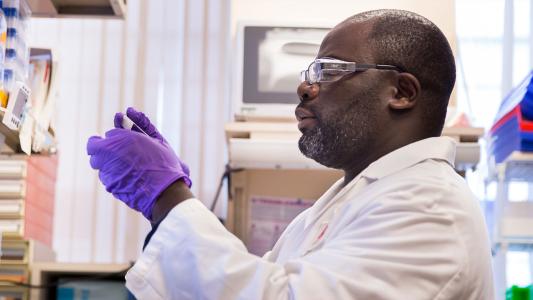Singapore is going to start distributing wearables for contact tracing to its residents, Foreign Affairs Minister Vivian Balakrishnan said in parliament on June 5, Bloomberg reported.
If the devices work as hoped, the city-state may then distribute the tech to all 5.7 million of its residents — a move that could help ensure COVID-19 cases don’t skyrocket as it eases up on lockdown restrictions.
Wearables for Contact Tracing
Contact tracing is the process of identifying everyone who may have been exposed to an infectious agent — that way, they can get tested and take steps to avoid further spreading the infection.
Contact tracing has long been a vital tool in battling outbreaks, and the coronavirus has been no exception. Rather than relying solely on manual contact tracers, though, many places — including Singapore — have been testing the ability of technology to streamline the coronavirus-tracking process.
In March, the city-state launched TraceTogether — an app for contact tracing that uses Bluetooth technology to identify close encounters with COVID-19 patients — and about a quarter of its residents have downloaded the app.
However, problems on Apple devices and complaints about drained smartphone batteries have prompted Singapore’s government to look for an alternative method of contact tracing.
Enter: wearables.
It will ensure that all of us will be protected.
Vivian Balakrishnan
Singapore hasn’t revealed too many details about the wearables for contact tracing, other than the facts that they’ll be battery-powered, will fit in a handbag or on a lanyard, and will serve the same purpose as TraceTogether.
It plans to start distributing the wearables to some residents “soon,” Balakrishnan told parliament, followed by a possible citywide expansion.
“If this portable device works, we may then distribute it to everyone in Singapore,” he continued. “I believe this will be more inclusive, and it will ensure that all of us will be protected.”
Privacy Concerns
The World Health Organization has called contact tracing an “essential public health tool” in the fight against COVID-19, and it’s hard to find anyone arguing against its importance.
However, many people have, understandably, expressed discomfort at the idea of using technology for the task — in recent years, we’ve seen China regularly mine citizens’ private online data and use the information to control them.
Singaporeans already have little right to privacy, which could contribute to their hesitancy to grant the government access to their personal tech for contact tracing.
“If I sign up for the (TraceTogether) app, I am afraid of how it could potentially reveal locations that I have visited, and what it might disclose about my movement,” Zhu Yong Quan, a student at the National University of Singapore, told the South China Morning Post in May.
For contact-tracing tech to be effective, researchers at the University of Oxford estimate at least 60% of a population would need to opt in — meaning TraceTogether hasn’t even hit the halfway mark more than 11 weeks after its launch.
If Singapore wants to do better with its wearables for contact tracing, it seems it’ll need to find a way to convince people that opting in won’t amount to putting Big Brother in their pockets or purses.
Balakrishnan didn’t outright say that Singapore wouldn’t make the wearables mandatory, but a recent interview suggests the government doesn’t see that as an option.
“(I)t is not just about technology…you need to make sure that the human remains at the centre of it all,” Balakrishnan told Sky News Australia in May. “Maintaining trust, respecting privacy, and getting voluntary participation is absolutely essential.”
We’d love to hear from you! If you have a comment about this article or if you have a tip for a future Freethink story, please email us at tips@freethink.com.






